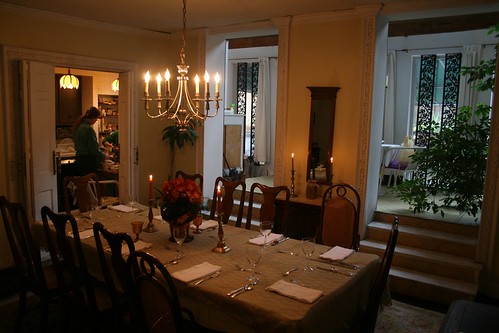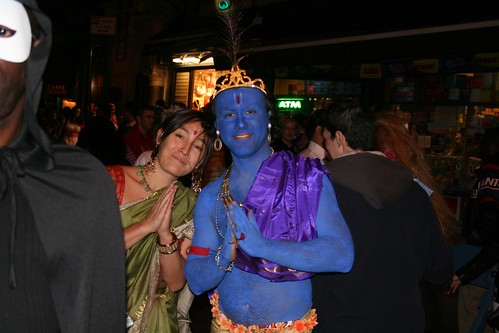Last week, I received word that the Government has announced that it has gone to the Solicitor General of the United States Justice Department for authorization to appeal the sentences of Lynne Stewart and her codefendants. In a very rare but not completely unprecedented move, they are seeking to have Judge Koetl's lighter than they requested or expected sentences set aside in favor of heavier ones.
It is late night in America, and the city is silent. I have been awakened by memories of trials I have witnessed where the word terrorism was used in many ways. I cannot sleep, as I remember privilege, the privilege I was afforded to sit in a court room with great lawyers, Mary B. Pike, William Moses Kunstler and Ronald Kuby, in one trial, and Lynne Stewart in another. And, I consider the privilege of other lawyers to be pardoned for their bad acts. I do not share this with you to judge the people involved, but, perhaps to judge the history of the nation.
Terrorism. A general orders the killing of an untold number of men, women and children at the Amritsar Temple in the Punjab. It is a week of religious observance at the central religious site for pilgrimage for the Sikh people. The excuse for this killing is the bolt action rifles carried by the honor guard of the temple. In modern warfare, these rifles are as dangerous as the small Kirpan, the miniature knife worn as a token by observant Sikhs. Whole families are burned in mass graves. The estimate is that between 450 and 1,200 were killed. The General who directed the killings, was later assassinated.
Terrorism. A number of suspects are arrested for the killing of the general and are tortured to death, beaten with metal rods and crushed under stones. On the "evidence" obtained by this crime, two Sikhs living in America are arrested. The "evidence" is of questionable reliability beyond the method by which it was obtained. For example, in one "confession" transcribed by typewriter, a coconspirator is named, Sukhvinder Singh. When Sukhminder Singh Sandhu is arrested with Ranjit Singh Gill, the "v" is changed to an "m" with a blue ball point pen. Evidence obtained under torture is not reliable for many reasons. Can one trust word of a government which commits torture, even about what was said by the victims of their crime?
Terrorism. During the trial, the prosecutor, Judy G. Russell meets secretly with the Federal magistrate, Ronald J. Hedges to discuss death threats she has been receiving from unknown persons in the Sikh community, she gives a description of a Sikh she suspects to the FBI. Similar threats are received by the judge. The FBI finds the author of these threats, and turns over evidence of this attempt to terrorize a Federal Magistrate in order to influence the outcome of proceedings in his court to Samuel A. Alito Jr., the United States Attorney for New Jersey. The author of these terrorist threats is Judy G. Russell, the government's own lawyer in this extradition case.
Terrorism. Sheik Omar Abdel Rahman, a blind Muslim cleric is asked repeatedly by a government informant if Muslims should make war in various ways against the US. He says his battle is against the government of Egypt, not the US. Finally, he is asked if it is against Muslim law to bomb the United Nations. His response is recorded, that it was not forbidden but that it would be bad for Muslims and should not be undertaken. He is tried and found guilty, his court appointed attorney is Lynne Stewart. In 1996, he is sentenced to life in prison, in a state of complete isolation, no news is to come in to him, no statements to come out of prison from him. He is to disappear from the world community. Attorney Stewart spends the next four years going through an unsuccessful appeal process, with translation by Mohamed Yousery, the author of a Ph.D. thesis which contends that it would not be a good outcome to replace the political tyranny of the present Egyptian Government, with the theological tyranny of Sheik Omar Abdel Rahman.
Terrorism. From his jail cell, Sheik Rahman endorses a peace process, whereby the Islamic Group (Gamma Islamiya), the group with whom he is aligned, will begin a cease fire with the government of Egypt. During that cease fire the government of Egypt continues extrajudicial killings of members of the Islamic Brotherhood. After appeals there is no public funding for lawyers. Rahman’s lawyer knows her client must remain in the public eye. She holds a press conference, on her client's behalf and states that in light of the breach of the cease fire by the government of Egypt, her client has expressed his opinion that the Islamic Group should, democratically consider ending peace process. This is not seen as a call to arms by the Government of the United States. Attorney Stewart is called into the US Attorney's office to re-sign her agreement to not speak directly on behalf of her client. The Federal Prosecutor with whom she meets, Patrick J. Fitzgerald, later has Lynne Stewart write his recommendation to the Bar Association of Illinois when he is posted to Chicago. Fitzgerald, goes on to be appointed to head an investigation, to see if charges under a federal law that makes it a crime to knowingly leak the name of an undercover officer will be brought against any member of the present administration in regard to the exposure of CIA officer Valerie Plame.
Terrorism. Years later, after the destruction of the World Trade Center, Stewart and her translator are arrested, as is a paralegal who worked with them. During their trial, Judge Koetl explains to the jury, many times, that this trial is not about terrorism, or the events of the 11th day of the 9th month of 2001. The government refers to both terrorism and 9\11 many times every day. After all three are found guilty, two jurors wish to change their votes, one speaks of being coerced by fellow jurors and a court officer. She reports that fellow jurors told her that if another event such as 9\11 happens, should they acquit, it will be her fault.
Justice. The government asks that Lynne Stewart receive thirty years in prison, and twenty years for Yousery the translator. Judge Koetl expresses his belief that, weighing Stewart's selfless service to the nation as a lawyer, justice should take into account her whole career and sentences her to twenty-eight months, and Yousery, twenty months.
Justice? The Government has announced that it has gone to the Solicitor General of the United States Justice Department for authorization to appeal the sentences of Lynne Stewart and her codefendants. They feel justice can only be served by placing Lynne Stewart in prison for a long, long time. What happened to Judy G. Russell? The Government response, led by Samuel Alito, (then the United States Attorney for New Jersey, now a Supreme Court Justice), accepted that Ms. Russell suffered from a mental disorder which was serious enough that they could not charge her with a crime. So, Judy Russell did not go to trial, and her illness was not serious enough for the court to have her committed ... or disbarred, so with no sanctions at all, the lawyer who made death threats against a federal magistrate was allowed to go into private practice in a prestigious firm. When it comes to lawyers' misconduct, it might matter on which side of the court room one has been sitting.




